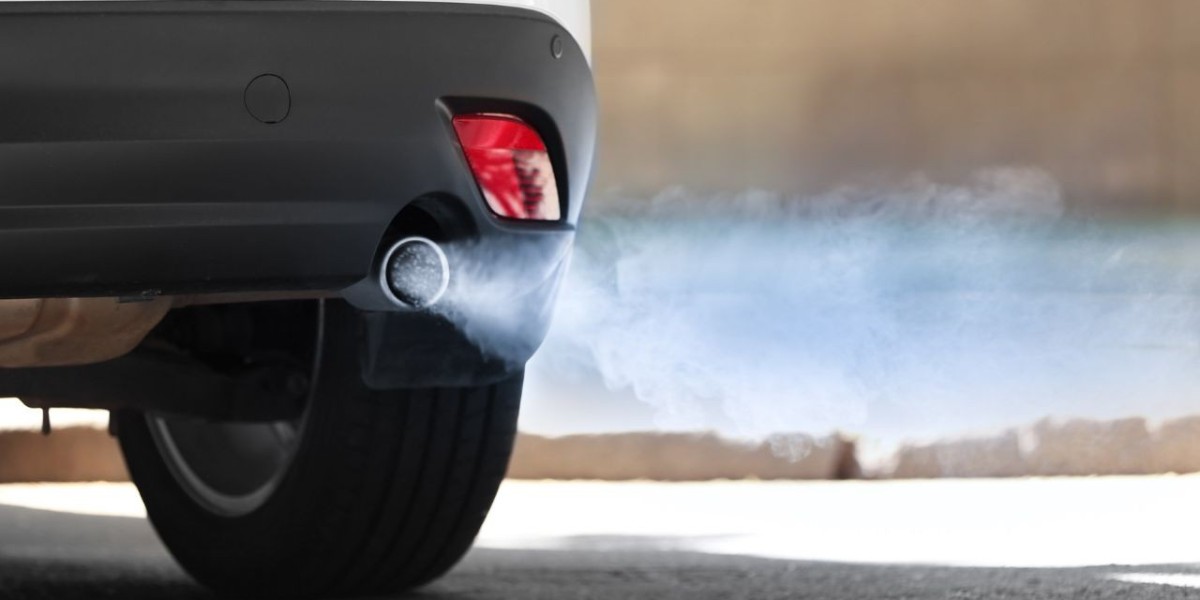Understanding the Causes of White Smoke
White smoke from your exhaust can indicate several issues, some of which are more serious than others. Here are the most common causes:
Condensation:
- In cooler weather, it’s normal to see white smoke from the exhaust when you first start your car. This smoke is usually just water vapor from condensation in the exhaust system. It should disappear within a few minutes as the engine warms up.
Coolant Leak:
- If white smoke continues after the initial startup, it could mean that coolant is leaking into the combustion chamber. This situation often occurs when the head gasket is damaged, or there are cracks in the engine block. If this is the case, you may also notice a sweet smell from the exhaust and decreased coolant levels in your reservoir.
Rich Fuel Mixture:
- A white smoke issue can also stem from an overly rich fuel mixture. When too much fuel is injected into the combustion chamber, it doesn’t burn efficiently, resulting in white smoke. This may be caused by a malfunctioning fuel injector or a clogged air filter.
Diagnosing the Problem
Here’s how you can diagnose the issue:
Check Exhaust Smoke During Startup:
- Pay attention to the smoke’s behavior. If it’s only present during startup and goes away quickly, it’s likely just condensation. However, if it lingers, further investigation is necessary.
Inspect Coolant Levels:
- Check the coolant levels in your reservoir. If it’s low, there may be a leak. Look for signs of coolant in your oil (which can look milky) or check for puddles under your car.
Observe Engine Temperature:
- Keep an eye on your engine temperature gauge. If your engine is overheating, it could be a sign of a blown head gasket or other serious issues.
Smell Test:
- A sweet smell from the exhaust often indicates burning coolant, while a strong fuel smell can point to a rich fuel mixture.
Fixing the Problem
Once you have diagnosed the issue, here are some steps to take:
For Condensation:
- If the white smoke is just condensation, you don’t need to worry. It’s a normal phenomenon, especially in cold weather. Just keep monitoring it to ensure it doesn’t become a persistent problem.
For Coolant Leaks:
- If you suspect a coolant leak, have a mechanic inspect your head gasket and engine block. If the head gasket is blown, it will need to be replaced. A mechanic can also pressure-test your cooling system to identify any leaks.
For Rich Fuel Mixture:
- If the smoke is due to a rich fuel mixture, check your fuel injectors and air filter. Cleaning or replacing a clogged air filter can often solve the problem. If fuel injectors are faulty, consider having them cleaned or replaced.
When to Seek Professional Help
If you are unsure about diagnosing or fixing the issue yourself, it’s best to consult a professional mechanic. They have the expertise and tools to accurately identify the problem and provide a solution. Ignoring white smoke, especially if it’s persistent, can lead to significant engine damage and costly repairs.
Conclusion
Seeing white smoke from exhaust on startup then goes away can be a normal occurrence, but if it continues, it's crucial to diagnose the underlying cause. By keeping an eye on your vehicle and addressing issues promptly, you can maintain its health and performance.
Regular maintenance and monitoring will ensure your car runs smoothly for years to come. If you're ever in doubt, don’t hesitate to consult a professional mechanic.










